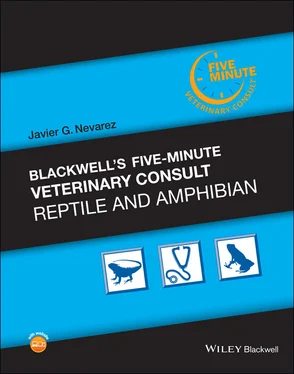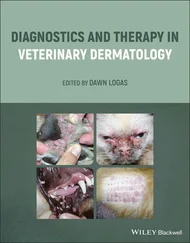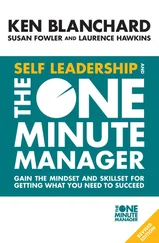Repeat liver biopsy if feasible
EXPECTED COURSE AND PROGNOSIS
Usually chronic, clinical resolution can take several months with most manifestations resolving, though renal damage may be permanent.
 MISCELLANEOUS
MISCELLANEOUS
COMMENTS
N/A
N/A
N/A
IM = intramuscular
UVB = ultraviolet B
1 Chen LP, Huang CH. Estimation of dietary vitamin A requirement of juvenile soft‐ shelled turtle, Pelodiscus sinensis. Aquacult Nutr 2015;21:457–463.
2 Li H, Vaughan MJ, Browne RK. A complex enrichment diet improves growth and health in the endangered Wyoming toad (Bufo baxteri). Zoo Biol 2009;28:197–213.
3 Mans C, Braun J. Update on common nutritional disorders of captive reptiles. Vet Clin North Am Exot Anim Pract 2014;17(3):369–395.
4 Miller EA, Green SL, Otto GM, Bouley DM. Suspected hypovitaminosis A in a colony of captive green anoles (Anolis carolinensis). Contemp Top Lab Anim Sci 2001;40:18–20.
AuthorEric Klaphake, DVM, DACZM
Hypovitaminosis B
 BASICS
BASICS
DEFINITION/OVERVIEW
Hypovitaminosis B generally refers to hypothiaminosis and is a health concern in reptiles that are fed fish—whether live or frozen thawed. Other cases have been reported in herbivorous reptiles and reptiles fed vitamin supplements lacking in thiamine.
In humans, thiamine deficiency can occur rapidly and advance to metabolic coma and death; causes being malnutrition, a diet high in thiaminase‐rich foods (raw freshwater fish, raw shellfish, ferns), chronic gastrointestinal diseases, and diabetes mellitus.
Thiamine derivatives and thiamine‐ dependent enzymes are present in all cells, but the nervous system is very sensitive, leading to nerve fiber myelin sheath degeneration causing necrotizing encephalopathy and peripheral neuritis.
Bilateral vision loss due to optic neuropathy can occur.
Thiamine is a water‐soluble vitamin synthesized by bacteria, fungi, and plants.
Captive fish‐eating garter snakes and semi‐aquatic turtles, and captive and free‐ ranging crocodilians are most commonly affected.
Feeding fish high in thiaminase—goldfish and fathead minnow, improperly thawed fish (thawing too slowly), or fish that has been frozen a long time can all be factors.
Some frozen thawed vegetables containing phytothiaminases lead to thiamine deficiency in green iguanas.
Insectivorous anoles developed thiamine deficiency due to lack of any thiamine in the multivitamin supplement because of extensive storage before use.
Thiamine is a rapidly deteriorating vitamin so it is important to ensure that supplements are stored and used properly.
Fish as primary diet
Thawed frozen vegetables
Using same container of vitamin supplement/powder beyond expiration date or past 6 months after opening.
Can present with non‐specific signs such as anorexia, dehydration, and lethargy, but suspicions of thiamine deficiency are greater with torticollis, opisthotonus, muscle tremors, incoordination, blindness, jaw gaping, and sudden death.
N/A
Piscivores
Thawed frozen vegetables
 DIAGNOSIS
DIAGNOSIS
DIFFERENTIAL DIAGNOSIS
Trauma
Infectious encephalitis
Toxins
Metabolic bone disease
Hepatoencephalopathy
Neoplasia
Cardiac disease
Renal disease
Ruptured aneurysm
Usually based upon history, clinical signs, and response to parenteral thiamine (B‐complex vitamins).
Cerebral cortical necrosis
• Peripheral neuritis
 TREATMENT
TREATMENT
APPROPRIATE HEALTH CARE
N/A
Avoid feeding fish known to have high thiaminase levels, such as goldfish and fathead minnows.
Proper storage of frozen fish by not keeping beyond 6 months of death/freezing.
Rapid thawing for five minutes in 80 degrees C (175 degrees F) water denatures thiaminase or thawing in refrigerator also avoids thiaminase activation.
An added level of protection would be to add thiamine 25 mg/kg fish.
Do not use vitamin supplements beyond expiration date or 6 months after opened.
CLIENT EDUCATION/HUSBANDRY RECOMMENDATIONS
Proper education about expiration dates/ opening dates of vitamin supplements, avoiding certain live fish species and carrying out proper thawing techniques for frozen fish.
Avoidance of too many thawed frozen vegetables.
 MEDICATIONS
MEDICATIONS
DRUG(S) OF CHOICE
Thiamine administered at 50–100 mg/kg IM, SC, or PO q24h until resolution of clinical signs.
A vitamin B complex formulation is less ideal but can be used if a thiamine‐only supplement is not available.
N/A
 FOLLOW‐UP
FOLLOW‐UP
PATIENT MONITORING
Reassess diet
Diet processing/handling
Supplementation at every visit
EXPECTED COURSE AND PROGNOSIS
If thiamine deficiency without concurrent issues, should have immediate response to therapy, although repeated treatments may be needed.
In non‐piscivores, often not considered and diagnosed postmortem on histopathology.
 MISCELLANEOUS
MISCELLANEOUS
COMMENTS
N/A
N/A
Thiamine deficiency
IM = intramuscular
PO = per os
SC = subcutaneous
1 Mans C, Braun J. Update on common nutritional disorders of captive reptiles. Vet Clin North Am Exot Anim Pract 2014;17(3):369–395.
AuthorEric Klaphake, DVM, DACZM
Читать дальше

 MISCELLANEOUS
MISCELLANEOUS BASICS
BASICS DIAGNOSIS
DIAGNOSIS TREATMENT
TREATMENT MEDICATIONS
MEDICATIONS FOLLOW‐UP
FOLLOW‐UP










